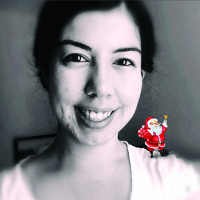
BY MELEK CANSU PETEK (ELIT/II)
petek@ug.bilkent.edu.tr
Writing fiction is unbelievably fun, so much so that I can’t stop myself from getting animated, jumping on chairs and tables, laughing and being amazed at an idea that has just popped up in my brain. Trying to create characters, making them speak with their own voices, developing plots and sometimes depicting a whole new world for that purpose are all joys of working on a story; however, every once in a while (or probably more often than that), the inescapable joy-stealer claims the stage and turn this process into a tragedy. That subtle enemy is called “writer’s block.”
Have you ever heard the term or, even worse, experienced it? You don’t necessarily have to be a writer to go through this dreadful trial. The complete numbness of your brain when you have to sit down and write an essay for a class can also be considered writer’s block. To define this “disease” in simple terms, it’s the inability to get started on a new work or to continue the work you’ve been doing. It can be a problem of not being able to come up with any original ideas to write about, or the block can become such a hindrance that it annihilates all your energy and creativity whenever you sit before pen and paper—or, for “modern” writers, the keyboard.
Although I’m not so pretentious as to consider myself a writer, I do suffer from this “problem” on a regular basis. It’s been two years since I’ve been able to write another page for a story that I started out pretty enthusiastically with a couple of dozen pages. I tell people that I set this novel-to-be aside to mature, but the truth is, I haven’t been able to decide on the shift my narration should take so that the story will move on in the direction I have already planned. In other words, I have the ending and a general outline, but I sincerely have no idea what should happen in the next chapter, and honestly, that is quite horrifying.
The good thing, though, is that writer’s block doesn’t happen because one is a terrible writer who has no creative abilities whatsoever. The inner critic who so harshly denounces us is often a liar who has the sole intention of putting us down. Lately, I’ve been going through a slightly more productive period due to some changes I’ve made in my habits. For one thing, I started keeping a draft notebook where I jot down any idea I have, even if it’s only a sentence. Who knows, after all, what a single sentence might end up becoming? Sometimes it’s not an idea at all, but how I feel at that particular moment, and an attempt to articulate that emotional state.
However, this is not the only way to solve the problem. In fact, there are no guaranteed ways to come up with a solution, as each person has a different pattern of creativity. If you have seen the movie “Stranger Than Fiction,” you have a visual image of the paralyzing effect of this “block” and how it is in one case eventually resolved. In the movie, Emma Thompson portrays an author who gets stuck while writing her latest novel and can’t decide how to kill the main character, which is her ultimate intent. Her attempts to solve this plot issue made me giggle quite often; they vary from pretending to commit suicide by jumping off her desk to going to an emergency room and asking where all the dying people are. Yet surprisingly, she finds the solution at the most unexpected point and finishes her book right after that moment of epiphany.
Though it’s a significant element in the story line, writer’s block is not the only thing the movie dwells on. The main event in the film is the lead character’s realization that his life is actually being described by an omniscient narrator who says that he will die quite soon, and his attempts to figure out what is happening to him and how he can stop his “imminent death.” The plot is very intelligently laid out, and I do love this movie, but if there’s one thing I love more, it’s the title.
Mark Twain says, “Truth is stranger than fiction, but it is because Fiction is obliged to stick to possibilities; Truth isn’t.” That’s what the movie seems to be suggesting as well. We tend to consider our lives to be an utter bore, but they really aren’t. Life is the ultimate source that writers lean on to bring out their inspiration. Emma Thompson’s character overcomes her block by the simple act of going grocery shopping. We may never have dragons or witchcraft schools around (alas!), but the point is to be able to learn from the seemingly unimportant twists and turns life drops on your plate and to articulate them in a way only you can do. That’s the quintessential solution to any blocks one needs to pierce through.
